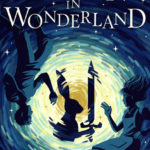Remembering The Soldiers Who Died
 Today is Memorial Day here in the US—the day set aside to remember the men and women in the armed forces who sacrificed their lives in the performance of their duties. It has special meaning, of course, for those who are grieving the loss of a friend or family member, but even those of us who have no immediate connection with such a tragedy nevertheless have a sense of gratitude that others put their lives on the line because those in authority deemed it necessary—for the protection of our nation or as part of the moral obligation we have to the world (think Germany, Korea, Kosovo, Sudan)—to send troops where they would be in harm’s way.
Today is Memorial Day here in the US—the day set aside to remember the men and women in the armed forces who sacrificed their lives in the performance of their duties. It has special meaning, of course, for those who are grieving the loss of a friend or family member, but even those of us who have no immediate connection with such a tragedy nevertheless have a sense of gratitude that others put their lives on the line because those in authority deemed it necessary—for the protection of our nation or as part of the moral obligation we have to the world (think Germany, Korea, Kosovo, Sudan)—to send troops where they would be in harm’s way.
In thinking about Memorial Day and speculative fiction, I wonder which writers have applied this reality of our experience—soldiers dying in battle and a national commemoration established in their honor—to our speculative worlds.
In the past I’ve discussed celebrations in general and Thanksgiving Day in particular. It only seems right to add Memorial Day as a holiday that could deepen the world-building of a culture—whether fantasy or science fiction.
It doesn’t seem to me that speculative stories are short on wars, and therefore people serving the rest of their culture or nation or species by marching into danger and possible death. What novels actually show beloved characters dying as part of their commitment to fight for right? I can think of several.
Frodo might be the most well-known character who marched into danger and possible death, but of course, he survived. Similarly Harry Potter either died and came back to life or survived, depending on your particular view of the ending of Harry Potter and the Deathly Hallows. Other beloved character, not the protagonist, however, did die: Dobby, Sirius Black, and Dumbledore in the Harry Potter books, and Reepicheep (though not in battle, per se) in Narnia.
The greater question: what books have some type of ceremony or observation or tribute to those who gave their lives? Especially to those who gave their lives in some time past, before the events of the present story?
 In reality, a type of Memorial Day accomplishes several things in speculative fiction. First it acknowledges the reality of death even as it underscores the danger of confronting the evil at hand. But such a commemoration day also anchors a story to the past. It requires a history of this make-believe world—past wars between nations or people groups, past leaders, past heroes, perhaps past songs or paintings or statues constructed in their memory. It also requires present ceremonies and special days and acknowledgment of grief and loss, of national pride or shame, of bitterness or inspiration. There is an emotional reaction to days like Memorial Day.
In reality, a type of Memorial Day accomplishes several things in speculative fiction. First it acknowledges the reality of death even as it underscores the danger of confronting the evil at hand. But such a commemoration day also anchors a story to the past. It requires a history of this make-believe world—past wars between nations or people groups, past leaders, past heroes, perhaps past songs or paintings or statues constructed in their memory. It also requires present ceremonies and special days and acknowledgment of grief and loss, of national pride or shame, of bitterness or inspiration. There is an emotional reaction to days like Memorial Day.
Here’s your turn, writers and readers: what books have you read that incorporate death on the battle field and/or the commemoration of those who have fallen? Are you writing a book with such a scene? Care to share it with us?









































One of the best statements I have read was in The Last Battle, where the centaur dies and has Farsight the eagle tell the king that “a noble death is a treasure no one is too poor to buy. ”
In my stories I am going to have at least one major character die in the service of his country. I don’t know how I’m going to handle it yet, but I know it has to be done.
What an excellent example! I hadn’t remembered that. Love the fact that Lewis included it. I tried to remember if Tolkien had any beloved characters die. The only ones I remembered were not so beloved. Of course it was sad when the elves left, and Frodo with them. So maybe that counts.
I incorporated some deaths in my fantasy, too. But they weren’t beloved characters, either. Well, except for one.
I think it’s worth doing because it makes the world much more real. But now, after writing this post, I think I want to add in some commemoration day for all those soldiers who died in years gone by. Writing this post to myself, I guess. 😉
Becky
*Tolkien spoilers!*
Just off the top of my head…
Boromir died on the battlefield after giving up both selfish and national desires.
Theoden also dies on the field of battle (with Snowmane).
Movie-wise, the funeral service of Theoden’s son with Eowyn singing is beautifully done.
Leanna, thanks for your contribution to this discussion. I love thinking about these kinds of aspects of speculative fiction.
I thought about Theoden, and I think he’s a fairly good example. I didn’t count him as beloved, though, because I didn’t love him! 😀 When he first came into the story, he was in opposition to the Gandalf and the other questers, and I viewed him as an enemy. Yes, he was under the influence of Wormtongue, but it did color my attitude toward him.
In the same way, I didn’t think of Boromir because before his change of heart, he’d attacked Frodo and tried to take The Ring from him. I’d also been suspicious of him for pages and pages because he made it clear that he thought the right course was for Gondor to take control of The Ring.
I like your mention of the funeral, and I agree that funerals are another opportunity to create depth for an imaginative world. What I hadn’t considered before was the idea that people who died fifty years ago or a hundred years ago or five hundred years ago might be commemorated for their sacrifice and service through some kind of ceremony or holiday.
Becky